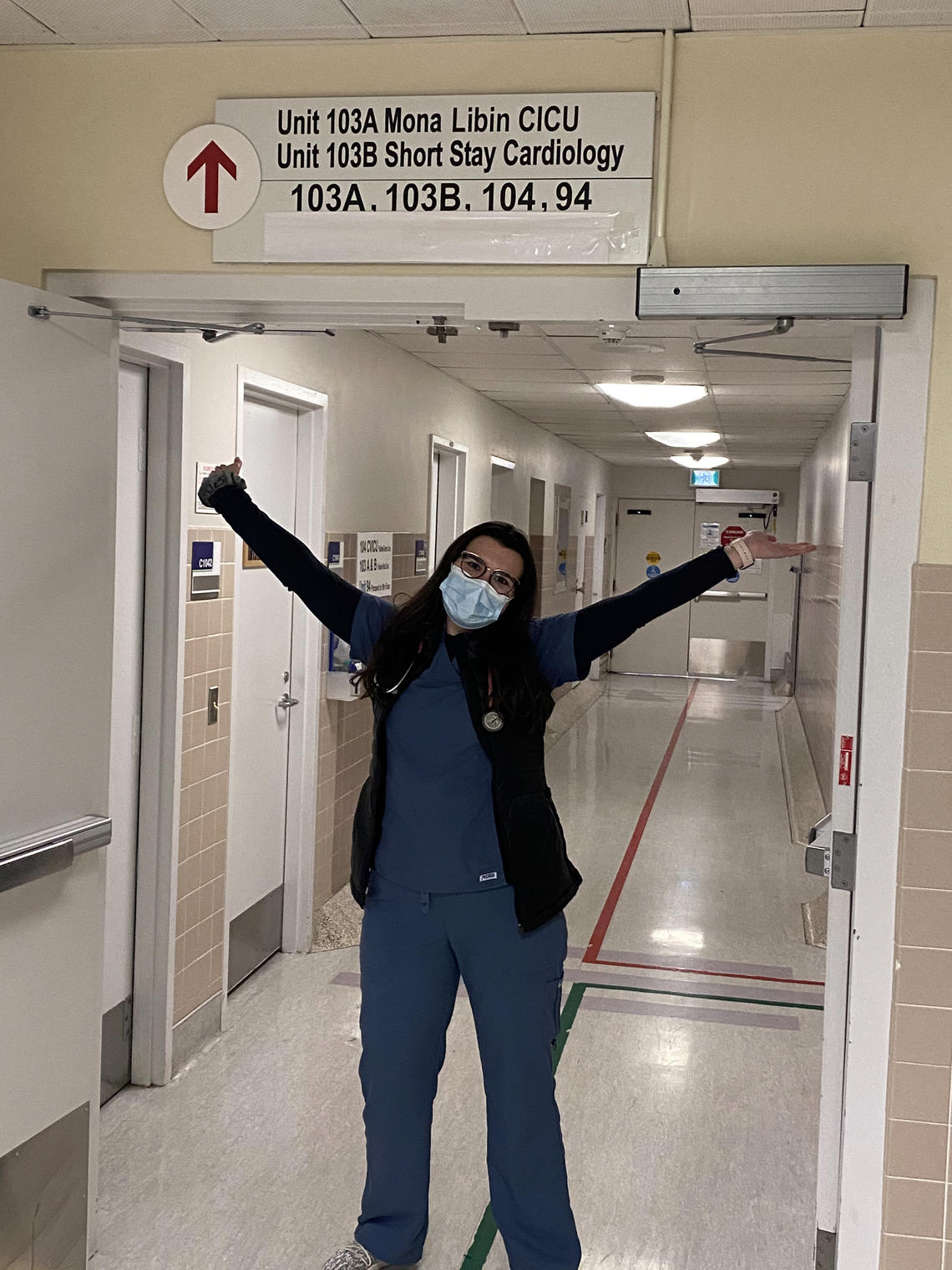Nov. 16, 2022
Mentees-turned-mentors pay it forward in UCalgary Nursing’s NurseMentor program
When a mentoring relationship is healthy and effective, there’s mutual benefit and respect between mentees and mentors — a constant feedback loop where both parties can learn from one another. It says even more when mentees choose to become mentors themselves, which is what we’ve seen with a few NurseMentor participants.
For Josephine Lee, BN’19, and Brenna Nagy, BN’21, it was their positive experiences as students and mentees in the faculty’s mentoring program that motivated them to stay involved and continue as mentors.
Nagy was a mentee in NurseMentor in 2019 and 2020 and as a student in the program, she was also one of the chairs of the undergraduate peer mentorship committee. She currently works in ICU at South Health Campus.
Lee is currently working her first term as a sessional instructor at UCalgary Nursing. After graduation, she worked on a medical teaching unit and internal medicine at Foothills Medical Centre. During the pandemic, she also did COVID-19 site support.

Josephine Lee, right, with her NurseMentor mentee Alexa Nagy, pictured in a Zoom meeting last year.
Lee says her mentorship journey started long before the NurseMentor program. During her first year, she got involved in student leadership through UCalgary’s Emerging Leaders program. “My first experience of mentorship was actually in my first year when I was paired with a second-year nursing student and that gave me insight into what the program really looked like, what to expect, some tips for how I can get through my first year of nursing school and what to prepare in order to succeed further down the road.”
Joining NurseMentor in her fourth year, Lee says her mentor at the time helped her to focus on what she wanted to do with her career. “She gave me a lot of insight towards that as well as further education which I was curious about.”
Lee has been involved with NurseMentor the last four years, transitioning straight from mentee to mentor right after graduation.
I've absolutely loved this NurseMentor experience and I think that's why I keep coming back. I just love working with the students and their transitions into practice. I found I have a real passion for wanting to teach and just wanting to meet these students where they're at and help grow them from the foundations into our future colleagues.
Both Lee and Nagy cite their previous mentoring relationships as inspirations behind their own approaches as mentors. Lee says: “I'm very much in like a developer role. I like to mentor my students by meeting them where they're at and then letting them lead how they want to be developed.
"Some just want emotional support for what they're going through year to year. Some are looking for more educational opportunities or to talk to different nurses who work in different areas.”

Brenna Nagy at Foothills Medical Centre.
As a student, Nagy was paired with ICU nurse Mia Torres Grove, BN’15, a NurseMentor participant since the program piloted in 2017. By the time she entered her final year of the program, Nagy says she knew she wanted to work in intensive care.
“I was lucky enough to be matched with Mia who was an ICU nurse at PLC. So that was kind of my motivation just to figure out what I want to do, then get advice on how to get there and how to set myself up for success.
“Just having someone to talk to on a weekly to bi-weekly basis about what was going on in clinical and where I'm at, what she’s doing and what that looks like with COVID was really helpful," she says. “We did a lot of our correspondence through email, which was very helpful because I can still look back on those old emails when I have questions about things that happen now.
Mentors are good because you can talk to your mentor about stuff that you might not talk to your friends or instructors about.
Nagy’s advice to students: “I don’t think you have anything to lose by joining NurseMentor. It's helpful to talk about school and just talking to a nurse. It’s never a bad idea to meet someone working in Alberta Health Services and get insights from more people.”
Lee echoes that sentiment and says that some students may be hesitant, thinking being a mentee means needing more help than other people. “I would say not at all — if you sign up to be a mentee, you’re ahead of the game. You're thinking about what's coming up next and you're looking for opportunities. Take advantage of what's out there and what people you might be able to connect with and start your networking early.”
Both agree that as mentors, they continue to learn and grow on this side of the mentoring equation. Lee encourages even young alumni like herself who’ve recently graduated to consider joining the program.
“If you're ever considering mentorship, remember you have something to offer. Don't let your experience in terms of the years or area of work be something that hinders you. Students are just happy to hear and have someone to be a sounding board and to help them find opportunities.”
Nagy adds: “It’s a good way to give back but a good reason to remember why I am a nurse. Being able to talk to a student is a way to stay connected to almost being a student myself.”
The 2022-2023 mentoring season is now open for registration. All undergraduate nursing students and alumni RNs are invited to join NurseMentor today!





